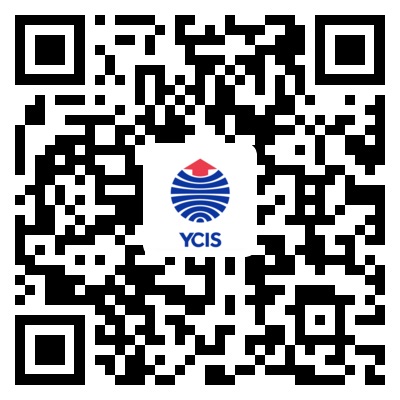Go Back
뉴스
뉴스
English Gets a New Shine with Secondary Classes at YCIS Qingdao
뉴스
2021 年 03 月 01 日
10 : 00
Is English crucial for students? This was a hotly debated topic at one time but with the growing acceptance of the language worldwide and its currency in business and travel, the answer is pretty clear. It is an international language of choice nowadays. Proficiency in English can be referred to as a competitive skill and it is very much a part of the toolkit for the global workforce. For YCIS students, English is not only a major academic course, but also the daily language in school life.
How Language Unlocks KnowledgeAt YCIS Qingdao there are no co-teaching classes in secondary, which means students have all courses in English except for dedicated Chinese courses. English is more than a language course. It is also the main channel for them to explore other subjects and to build a sense of value.
Lower Secondary English Language and Literature (ELL) classes help students to not only improve their ability to read, write, listen, and speak in English, but also to understand and think critically about poetry and prose. As the students attain a fuller understanding of various texts they are exposed to, they also have the opportunity to express this knowledge through various forms of creative written and oral expression.
Excerpt fromThe Storm by Samantha Hng-It is a cold, stormy night. Midnight. The moon is hiding behind the clouds, while the wind is howling outside. The candle is still burning, shaking, shivering in the cold wind of winter while depicting the silhouette of a man, an old man sitting quietly in the rocking chair looking peaceful and calm, looking to be asleep, but never to wake again. On the table in front, a signed donation contract laid, indicating all of the estate would be given to a charity organisation, for orphans. Death is something that nobody can escape. Not even if all wealth and glory are heaped upon oneself. Only till the minute of death, could he realise that nothing could be brought into the grave but himself. No mone, or fame. That night before he died, the storm was both raging outside and inside.
Excerpt of descriptive writing by Fengshou Liu –Surprisingly, the persimmon tree at my grandma’s house is still there. I used to pick persimmons with my friends in the town. There are persimmons on the ground, so I pick one up. It’s bright orange coloured with a bit of red at the bottom. I take one bite. It has definitely ripened properly. It tastes sweet, but I can feel the sour tastes that persimmons have. As I’m leaving the house there is a whistling sound in the air. I look towards the sky and see a group of eagles hovering on top of the mountain, through the clouds. There is a road in the middle of a field of grass, which leads me to the mountain, and I see some women carrying their clothes to wash downstream. There are men upstream fishing.
Lower Secondary English as an Additional Language (EAL) class focuses on improving the students’ ability in the four major skill areas: reading, writing, listening and speaking. Particular emphasis is placed on developing writing ability, as this will assist them across all subject areas through life. Additionally, vocabulary and spelling is a major focus. Students also learn subject-specific terminology.
We now have teaching assistants in several lower secondary classes such as Maths, Science, Humanities, and Art. They support lower-level English students in understanding the course content.When students go up to the higher secondary levels, they will experience IGCSE and IB English courses gradually over time. For first language students, they will explore literature from different genres, periods and places so as to understand and appreciate how writers use language and text types, to create and shape meaning.
Second language students enjoy activities such as designing their own futuristic tourism websites, reading captivating short stories, listening to podcasts and, of course, perfecting different forms of prose, like e-mails, summaries, essays, reports, and magazine articles.Language courses are based on a broad range of literature while classroom activities help build confidence and ability through debates, role-play, games, group projects and presentations. Activities also aim to develop critical thinking and analytical and creative skills across the lower and upper secondary classes. Overall, we employ a “balanced” method of teaching – introducing each skill in a setting that involves use of multiple skills during the course of the activity.
English Wednesdays is an innovative and fun forum to encourage students to speak the language in social settings outside the classroom. Students who are “caught” speaking English informally with friends during morning and afternoon breaks, are rewarded with “Form Points”, which are later tabulated. The winning form receives a delicious meal as a reward!
“Align with science and technology” is one of the YCIS mottos. Students also use a variety of technological resources, including Readtheory.org and IXL.com, to develop language skills and to track their own progress. We also hold exciting competitions periodically in order to motivate students to challenge themselves.
As the YCIS mission is to raise globally competent and compassionate leaders with a servant’s heart, our English courses go well beyond equipping students with excellent language skills. They provide a unique, comprehensive and multicultural global perspective for life.
Thanks to Secondary English teachers Lisa Bruno and Jared Vaughn for their help












